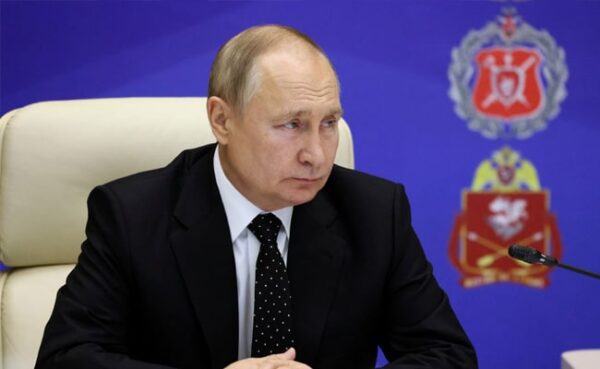
India as France opposes softening criticism of Russia
The pressure continued to mount on India to strongly condemn Russia in the official G20 statement after France said it will oppose any softening of the language that was agreed by the leaders in Bali.
Speaking to reporters on February 24 in Bengaluru at the meeting of G20 finance ministers and central bank governors, Bruno Le Maire, France’s Minister of the Economy and Finance, said the wording of the condemnation of Russia is a key point holding up the finalisation of the communique.
And once again, don’t make any mistake, we will oppose any step-back from the declaration of the leaders in Bali,” Le Maire said.The G20 Bali Leaders’ Declaration, released in November under the presidency of Indonesia, had said most members “strongly condemned the war in Ukraine” while others had different views and “different assessments of the situation and sanctions”.
India, which assumed the presidency of the G20 in December, has so far been neutral and has looked to walk the path of dialogue and diplomacy. As part of this approach, it has looked to avoid discussions on the imposition of further sanctions on Russia in G20 meetings and the use of the word “war” in official G20 statements.
Earlier today on February 24, Prime Minister Narendra Modi delivered a video message in the inaugural session of the meeting of finance ministers and central bank governors and said there were “rising geo-political tensions in different parts of the world”.
France is the latest nation to publicly put pressure on India to ensure that the official G20 statement, which was initially expected to be finalised by 6 PM on February 25, with Finance Minister Nirmala Sitharaman expected to brief the media following the communique’s adoption.
On February 23, US Treasury Secretary Janet Yellen slammed Russia for its unjust attack on Ukraine. This was followed by a statement from Japan-led G7, which criticised the “illegal, unjustifiable, and unprovoked war” and called on other countries to join the bloc’s sanctions on Russia.
However, a consensus on the language of the statement is far from agreed upon, with the description of the conflict between Russia and Ukraine proving to be a sticking point.Language gapAccording to sources in the know, there remains a “gap” between the language preferred by India on one hand and the US and European countries on the other.
There is a gap, yes. But India is trying to reach a consensus. As the G20 presidency, India has to try all possible avenues to reach a consensus,” a source said on the condition of anonymity, adding that even a single dissent could scupper the communiqueAnother source said that it was not possible for “India to agree to some things”.
Even as countries called for strong condemnation of Russia, they expressed hope that an agreeable solution would be reached.We fully trust India to reach a strong communique and we are quite happy to see India in the driving seat today. We share the view of Prime Minister Modi: this is not and this must not be an era of war,” France’s Le Maire said.
When asked to comment on whether India’s relationship with Russia through the purchase of highly discounted fuel could lead to softening of the language of the G20’s official statement, Japan’s Finance Minister Shunichi Suzuki had said: “We need to see what the statement will say and whether a consensus will be reached. I don’t want to pre-judge the statement and the negotiations.”
The official statement’s language apart, Le Maire also called for rapid assistance for developing countries, who have been hit by multiple forces in recent years: COVID, inflation, the consequences of the war in Ukraine, and climate change.
We should not underestimate the social and political consequences of this growing gap between developed countries with a strong level of growth and developing countries that run the risk of lagging behind… There is a need to act quicker, stronger, and better for developing countries,” Le Maire said.
On debt, the French minister called for the Common Framework for debt treatments to be implemented quickly rather than making further improvements to it, which would take more time.It is no time to improve the common framework. It is time to implement the common framework,” he said, adding that developing countries were “waiting for decisions, not for improvements”.

